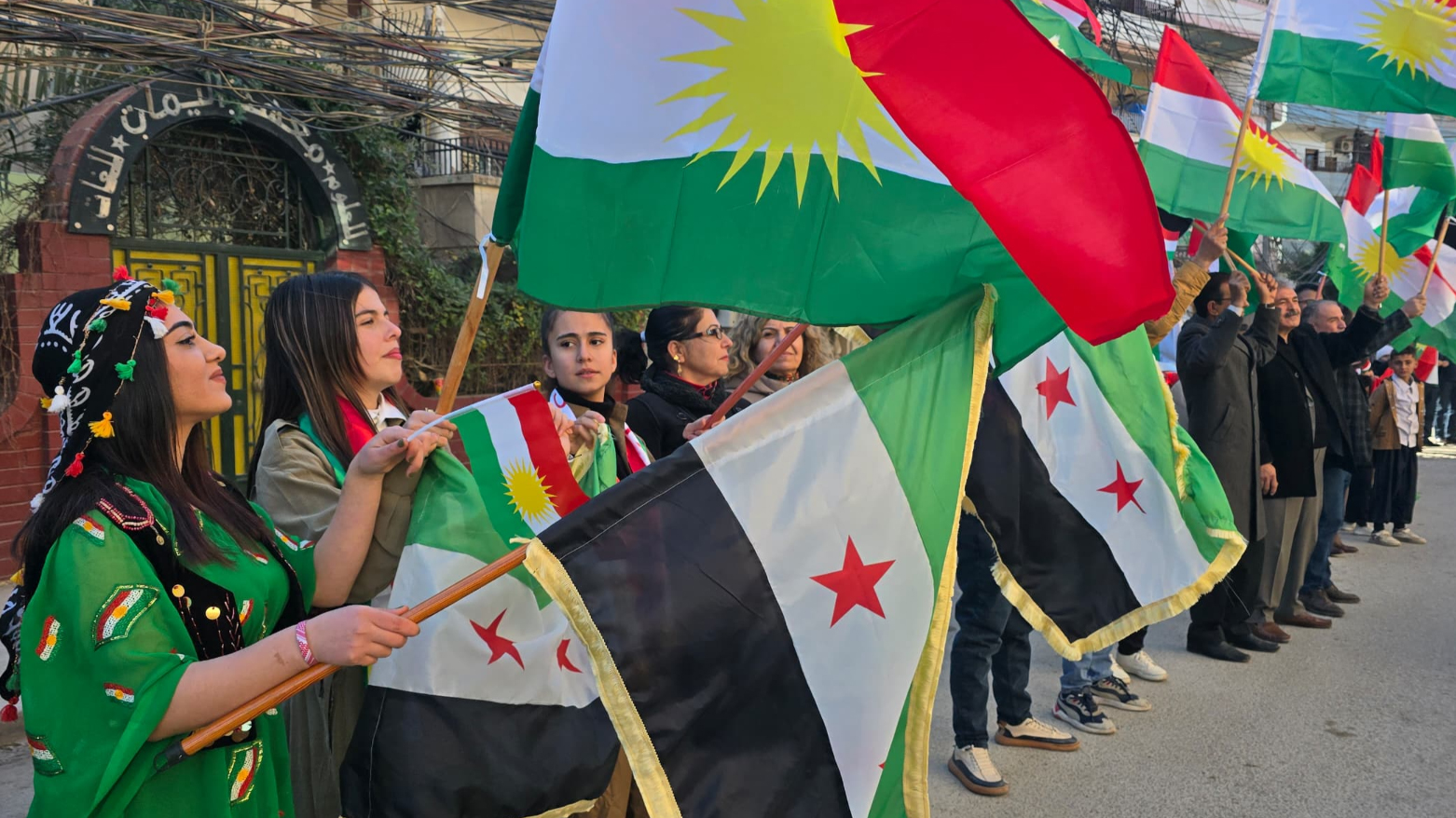KNCS: Any Delegation Must not be Seen as Replacement for Unified Kurdish One
KNCS receives invitation for talks with Damascus but insists any delegation cannot replace a unified Kurdish representation. The council stresses dialogue must be based on the Kurdish Unity Conference outcomes.

Erbil (Kurdistan24) – The Kurdish National Council in Syria (KNCS) confirmed on Saturday that it has received an official invitation from Syrian Transitional President Ahmad al-Sharaa for talks in Damascus. However, a senior KNCS leader underlined that any delegation sent to the capital must not be considered a substitute for a unified Kurdish delegation representing all Kurdish parties.
Suleiman Oso, a member of the KNCS presidential committee, stated that while the Council does not reject dialogue, the nature of representation is critical.
“We do not reject dialogue,” Oso affirmed, “but this delegation cannot replace a joint Kurdish delegation founded on the basis of the Kurdish Unity and Solidarity Conference.”
He stressed that no Kurdish party should fear the invitation, as coordination already exists between KNCS and the Kurdish National Unity Parties (PYNK). “Negotiations must be held on that foundation,” he added, signaling that any engagement with Damascus should be conducted through a broad-based Kurdish platform.
Gabriel Moushe, head of the Assyrian Democratic Organization, echoed the importance of the invitation. “Regarding the KNCS invitation for talks with the Transitional President, I believe this is significant. We are in a transitional phase, and more dialogue is essential. No opportunity for discussion should be wasted in the effort to shift power away from domination. At the same time, dialogue between KNCS and the PYD is ongoing, and no one should fear this invitation,” he told Kurdistan24.
In its latest meeting, the KNCS reaffirmed its commitment to the outcomes of the Kurdish Unity and Solidarity Conference, stressing the need to strengthen the role of a unified Kurdish delegation in negotiations with Damascus. The Council reiterated that Kurdish rights must be secured within the framework of a democratic, decentralized, and unified Syrian state.
This development follows earlier remarks by President Ahmad al-Sharaa, who signaled readiness to engage in dialogue with both Kurdish and Druze communities as part of his stabilization strategy after the collapse of Bashar al-Assad’s regime.
While Sharaa has repeatedly expressed willingness for dialogue, Kurdish representatives remain cautious. Abdulkarim Omer, a political analyst, told Kurdistan24 that Sharaa’s statements must be “translated into practical steps rather than remaining rhetorical gestures.”
Similarly, Luqman Suleiman, KNCS representative in Damascus, emphasized that although the president’s words were “important steps in the right direction,” they had not yet evolved into fundamental solutions. “The changes are tied to state institutions,” he said, “and Sharaa’s words remain words without an implemented decision.”
Observers suggest that the next phase could see the launch of direct negotiations between Damascus and both Kurdish and Druze representatives, a move that could open the door to easing tensions and fostering genuine reconciliation.
Yet, Kurdish political circles underline that the credibility of such dialogue will depend on inclusive representation and tangible commitments, not symbolic gestures.